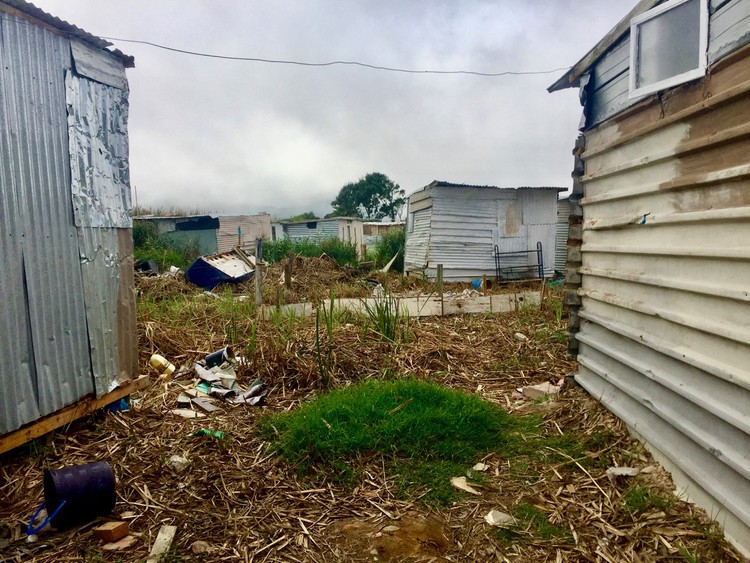In Masiphumelele’s wetlands, everyone dreads the winter
Shackdwellers fear they’ll be sidelined by City housing plans
As winter approaches and Capetonians who live on solid ground wait anxiously for rainfall, shack dwellers in Masiphumelele’s wetlands fear that, once again, they may lose everything in the winter rains.
The City of Cape Town plans to extend a road through Masiphumelele, and community leaders are concerned that people living where the road is to be built will be prioritised for housing, leaving the shack dwellers in the wetlands during winter.
“It seems like the roads are more important than the people,” Masiphumelele resident Felicia Ntunguzi told GroundUp.
Melvin Kilani, a community leader in the township, worried that City officials were overlooking the needs of residents living in a growing informal settlement on wetland ground. When the heavy rains arrive the shacks are destroyed in the flood. Kilani said more and more residents had moved into the wetland area because rent in Masiphumelele backyard flats had increased.
“People are desperate so they build in wetlands,” he said. “This place looks like a river. You’re not supposed to live here. It’s a river.”
Kilani said wetland dwellers needed to be moved urgently before winter came. “Move the people living in the most dire conditions first. Then move people for the road.”
Kilani and other community leaders have been in discussion with the City and the Western Cape public protector about the needs of wetland dwellers following protests by the community in March.
However, Kilani said, the City’s plans to extend Houmoed Avenue would prioritise those residents who lived where the road is to be built.
“We want the people in the wetlands to be moved, and only if there’s excess land then move people for the road,” he said.
Nolwandiso Fetman lives in one of the wetland homes. Her shack stands on a homemade wood and concrete platform to prevent water leaking in when it rains. She gets electricity from a house further inland. Her home has previously been destroyed in floods and fires.
“We’re scared. Most of the time there’s a lot of wind and the house shakes,” she said.
According to City of Cape Town spokesperson Lizel Steenkamp, the City has “been constrained by suitable available land for the delivery of housing in this neighbourhood”.
Steenkamp said the City had built 269 houses in Masiphumelele over the past five years as part of the Masiphumelele housing project and another 227 homes were to be built. To qualify for these houses, residents had to be registered in the City’s housing database and have a monthly household income of less than R3,500. She said the land would be handed over to the contractor by the end of May and construction was set to take 10 months, “pending any unforeseen challenges or delays”.
The City had formerly agreed that wetland dwellers would be relocated as part of the new development. Some of the 227 subsidised homes were to be built on an area known as Erf 5131. GroundUp reported that the City had previously identified the land to be developed as emergency housing relief for wetland dwellers after an investigation by the public protector.
Masiphumelele community leader Tshepo Moletsana told GroundUp that the community was waiting for the development of the land. “Erf 5131 was bought to build houses for the people of Masi,” Moletsana said. “But it didn’t happen because it didn’t get funding from the City.”
The next meeting between community leaders, City officials, and the Western Cape provincial human rights commissioner and public protector is set for 21 April.
Support independent journalism
Donate using Payfast

Don't miss out on the latest news
We respect your privacy, and promise we won't spam you.
Next: Commuters battle to get to work as bus strike starts
Previous: Trapped in Bholobholo without a toilet for 10 years
© 2018 GroundUp. 
This article is licensed under a Creative Commons Attribution-NoDerivatives 4.0 International License.
You may republish this article, so long as you credit the authors and GroundUp, and do not change the text. Please include a link back to the original article.

